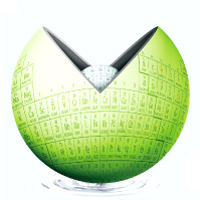
Published for geochemistry community from Geochemical Society of Japan.
Compositional and isotopic characteristics of hydrocarbons generated by a hydrothermal experiment simulating seafloor sediment alteration stepwise heating from 275 to 361°C at 30 MPa
Geochemical Journal, Vol. 53, No. 4, P. 281-291, 2019
ABSTRACT
We conducted a laboratory hydrothermal experiment that simulated generation of low molecular-weight hydrocarbons during seafloor sediment alteration at 275–361°C and 30 MPa. The abundance and carbon and hydrogen stable isotope composition of low molecular weight thermogenic hydrocarbons in the fluids were determined. In general, the abundance of C1−C4 alkanes increased with time. The abundance of CH4 relative to C2−C4 alkanes as reflected by C1/C2+ ratios showed progressive increases from 1.2 to 4.3 with continued sediment heating. Alkenes were enriched in early phase and decreased with time. Carbon isotope ratios (δ13C) of thermogenic CH4 ranged between –42.0~−24.2‰. Carbon isotope ratios of C2H6 and C3H8 were similar to each other throughout the experiment (δ13C = –28.0~−20.3‰). In general, the carbon isotope ratios of C1−C4 alkanes were more close to those of substrate organic matter in larger carbon numbers and at later periods of the experiment. Hydrogen isotope ratios (δD) of CH4 varied from –325~−262‰, more negative than those expected at the isotope equilibrium between CH4 and H2O. Compared with results from the experiment, natural hydrothermal fluids show higher C1/C2+ ratio, more diverse δ13CCH4 values among the fields, higher δ13CC2 values, and higher δDCH4 values. The differences likely result from lower maturity of the experimental fluid and biogenic methane contribution to the natural fluids.KEYWORDS
carbon isotope ratio, hydrogen isotope ratio, fluid-sediment interaction, low molecular-weight hydrocarbons, Okinawa Trough- Published : 2019
- Released on J-STAGE : 2019/08/08
- Received : 2019/03/01
- Accepted : 2019/05/28
- DOI : https://doi.org/10.2343/geochemj.2.0566
- J-STAGE URL : https://www.jstage.jst.go.jp/article/geochemj/53/4/53_2.0566/_article/-char/ja
- J-Online ISSN: 1880-5973
- Print ISSN : 0016-7002
- ISSN-L : 0016-7002
All Issues
- Vol.59, 2025
- Vol.58, 2024
- Vol.57, 2023
- Vol.56, 2022
- Vol.55, 2021
- Vol.54, 2020
- Vol.53, 2019
- Vol.52, 2018
- Vol.51, 2017
- Vol.50, 2016
- Vol.49, 2015
- Vol.48, 2014
- Vol.47, 2013
- Vol.46, 2012
- Vol.45, 2011
- Vol.44, 2010
- Vol.43, 2009
- Vol.42, 2008
- Vol.41, 2007
- Vol.40, 2006
- Vol.39, 2005
- Vol.38, 2004
- Vol.37, 2003
- Vol.36, 2002
- Vol.35, 2001
- Vol.34, 2000
- Vol.33, 1999
- Vol.32, 1998
- Vol.31, 1997
- Vol.30, 1996
- Vol.29, 1995
- Vol.28, 1994
- Vol.27, 1993
- Vol.26, 1992
- Vol.25, 1991
- Vol.24, 1990
- Vol.23, 1989
- Vol.22, 1988
- Vol.21, 1987
- Vol.20, 1986
- Vol.19, 1985-1986
- Vol.18, 1984
- Vol.17, 1983
- Vol.16, 1982
- Vol.15, 1981
- Vol.14, 1980
- Vol.13, 1979
- Vol.12, 1978
- Vol.11, 1977
- Vol.10, 1976
- Vol.9, 1975
- Vol.8, 1974
- Vol.7, 1973
- Vol.6, 1972-1973
- Vol.5, 1971
- Vol.4, 1970-1971
- Vol.3, 1969-1970
- Vol.2, 1968
- Vol.1, 1966-1967
Current Issue:
Stats:
Impact Factor: 1.6 (2024)
Submission to final decision: 9.6 weeks (2022)




